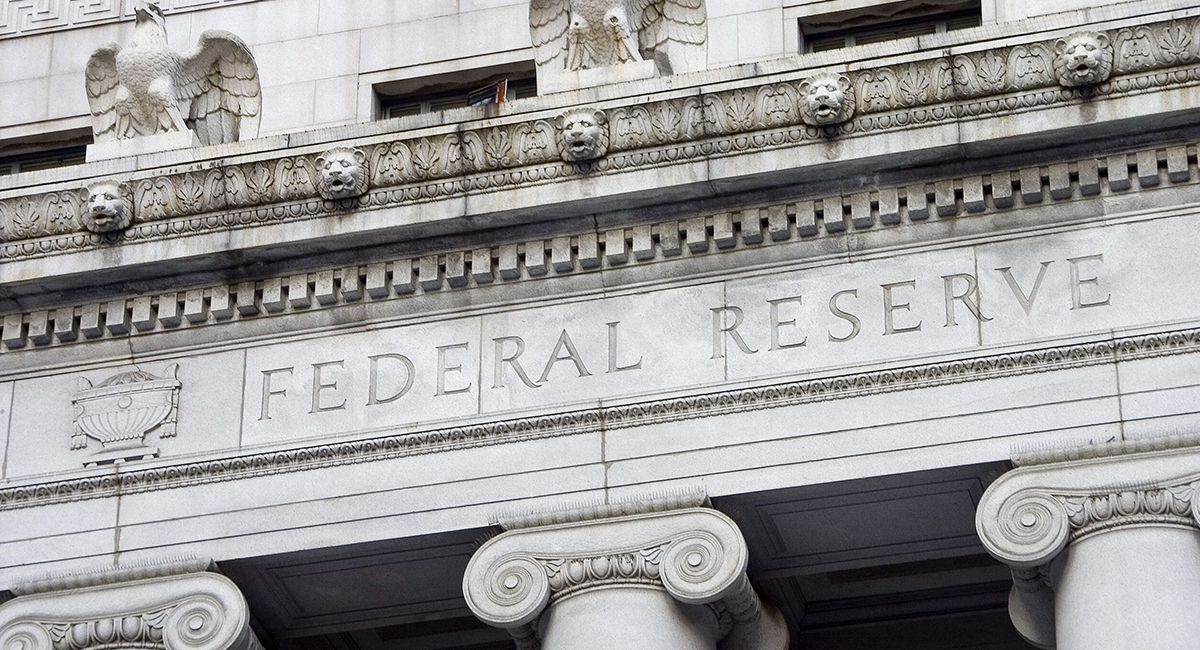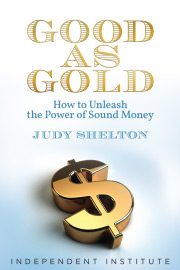Trust, honesty, accountability—these are the watchwords of President Barack Obama’s administration. In his inaugural speech, Mr. Obama made it clear that these principles are especially applicable to fiscal and budgetary matters. “Those of us who manage the public’s dollars will be held to account—to spend wisely, reform bad habits, and do our business in the light of day—because only then can we restore the vital trust between a people and their government.”
Fiscal accountability is imperative because when government spends more than its citizens can afford, it hollows out the productive capabilities of the nation. Resources that should be used to create new wealth are allocated to pay interest on accumulated debt; instead of investing in tomorrow, people must labor to pay yesterday’s bills. When deficit spending is accommodated by loose monetary policy, it leads to internal bankruptcy—indeed, whole nations have foundered on this path.
Which is why the Obama administration should be asked to provide assurances it won’t compromise the integrity of our money as it strives to implement its $3.9 trillion budget and simultaneously reduce the deficit. We cannot balance the budget by resorting to the dodge of inflation. Fiscal honesty demands a meaningful measure of value, an honest dollar.
Therefore, it is crucial that as Mr. Obama talks up his blueprint for reducing the deficit from 12.3% of GDP to a mere 3% within the next four years, the underlying economic assumptions that drive his projections are subjected to close scrutiny. One factor that tends to get overlooked is that the year-to-year growth in projected GDP is a function of two estimates: real growth and inflation. It is the combination of these two estimates that provides the budget number that serves as the denominator for calculating the deficit as a percentage of GDP.
Here’s an example of some fuzzy math: The Obama budget shows GDP at $14.240 trillion in 2009 and projects it at $17.498 trillion in 2013. In other words, it projects that the total value of U.S. economic output will increase by 23% over the next four years, i.e., it will be nearly one-quarter larger. The projected deficit for 2013 is $533 billion in the Obama budget; hence, $533 billion divided by $17.498 trillion is 3%—voila! the impressive deficit-at-3%-of-GDP claim four years out.
The trick lies in getting a big number for GDP growth, and the fudge factor arises from assigning relative weights for real growth versus inflationary growth. The Obama budget assumes 70% of the increase can be attributed to real growth, 30% from inflation.
The fact that the mainstream summary of private economic forecasts known as the Blue Chip Consensus predicts nominal GDP in 2013 will be $730 billion lower than does the Obama budget—and also assumes lower real growth and higher inflation across the same four-year period—was dismissed not long ago by Christina Romer, chair of Mr. Obama’s Council of Economic Advisers. “We are economists and not soothsayers,” she quipped.
Economists are notorious for disagreeing with each other, true. If you were to poll economists right now whether the bigger threat on the horizon is deflation or inflation—you would receive a continuum of opinions.
But what most Americans are concerned about, it’s safe to say, is not so much the possibility of declining prices—after all, lower prices can serve as a stimulus to start buying—but rather the likelihood that the purchasing power of their wages and savings will be eroded through inflation. It’s small comfort to have more dollars rounding out the economy these next few years if those dollars are worth less. So it very much matters how much of the projected growth touted in the Obama budget will turn out to be real, and how much is apt to be achieved through money illusion.
Economists may not be soothsayers, but they should strive to be truth tellers. It’s one thing to claim that the dollar value U.S. economic output will be one-quarter higher in four years; it’s quite another to suggest that the U.S. GDP in 2013 will be worth one-quarter more.
Can the president’s economic team definitively state that inflation is not baked into the plan? Would Mr. Obama be willing to guarantee the stable purchasing power of the dollar?
The notion that monetary policy might be in cahoots with fiscal policy is sure to elicit howls of protest all the way from the Treasury to the Federal Reserve—about a mile’s distance. But no one can seriously suggest that the Fed has not been politicized beyond all pretenses toward independence. The Fed has become a key player in the government’s efforts to deal with the credit crisis, purchasing hundreds of billions in mortgage-backed securities guaranteed by federal agencies and taking them onto its own balance sheet. Last month the Fed issued a joint statement with Treasury that they stood ready to inject more capital into banks “to provide a cushion against larger-than-expected future losses.” And according to yesterday’s surprise announcement, the Fed now plans to buy up long-term Treasury bonds—an act of fiscal incest—while taking another $1 trillion or so onto its balance sheet to boost consumer spending.
So the Fed is involved up to its neck in this blueprint for the future. Does anyone doubt that former Treasury Secretary Larry Summers, who heads the White House’s Economic Council, is slated to be the next Fed chairman?
All of which brings into urgent focus the need to put down a marker for sound money. How can capitalism find its footing when the monetary foundation is shifting with each new government bailout—each new infusion of deficit-financed government expenditure? American families deserve better than to be punished by wasteful public spending and ruinous inflation.
We must require the Obama administration to abide by its professed willingness to be held to account. We should demand a new form of savings bond from the government aimed at safeguarding the purchasing power of the currency. “Make the dollar, once again, an honest dollar,” Jack Kemp urged as a Republican candidate for president in 1988. “The dollar should be so trustworthy, so predictable, so lasting in value, that it’s as good as gold.” Thirty years later, gold remains a surrogate for long-term confidence in U.S. fiscal policies. Judging from the steep rise in the dollar price of gold—and runaway sales of gold coins—the verdict is not positive.
It is time to take a stand. Honest money is essential to an honest budget; we need to safeguard the integrity of America’s currency. As Republicans put forward an alternative blueprint for America’s future based on pro-growth tax policies and entitlement reform, they should also seek to pass legislation authorizing the issuance of gold-backed Treasury bonds—payable at maturity in dollars or ounces of gold, at the option of the holder.
A limited issuance of gold-backed Treasury bonds would serve as a sign to U.S. citizens that the dollar will not be the default mechanism for governmental excesses. “The Honest Dollar Act” will function as a barometer measuring the fiscal rectitude of the Obama administration. If the promised deficit reduction has been sufficiently accomplished to stem inflationary fears, holders of gold-backed Treasury obligations are unlikely to redeem in gold; after all, gold pays no interest and normally engenders warehousing costs. Unless the utter lack of progress toward fiscally conservative goals has unleashed even more egregious levels of deficit spending, repayment in dollars will be preferred. But the right to convert the face value of the note for gold at a fixed rate—say, $1,000 per troy ounce—conveys a trust-but-verify provision that marks the first solid step toward sound money.
As we strive to turn the U.S. economy around, let us not forget that money is a moral contract between government and citizens—a key aspect of that “vital trust” between a people and their government to which Mr. Obama so powerfully subscribes. And which we must uphold.









